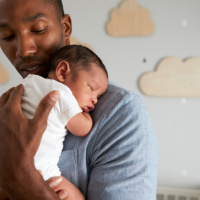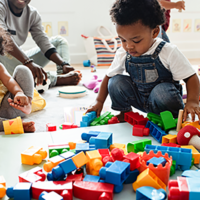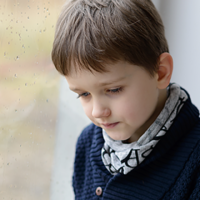Child development
-

Infant and preschool attachment, continuity and relationship to caregiving sensitivity: findings from a new population-based Australian cohort
Open Access paper from the JCPP – ‘Here, we report new prevalence and temporal stability data for child attachment and parental caregiving behaviour, from infancy (1 year) to preschool (4 years)’. Jennifer E. McIntosh et al.
Read more -

More frequent naps are associated with lower cognitive development in a cohort of 8–38-month-old children, during the Covid-19 pandemic
Open Access paper from JCPP Advances – ‘Here we investigate sleep patterns in association with two measures of cognitive ability, vocabulary size, measured with the Oxford-Communicative Development Inventory and cognitive executive functions (EF), measured with the Early EF Questionnaire, in a cohort of 8–38-month-olds’. Teodora Gliga (pic) et al.
Read more -

Don’t blame the children: Supporting families with young children
Most research on the relationships between children and their parents focuses on the effects parents and their parenting have on children and their behaviour. However, researchers are more and more recognising and studying the impact that children’s behaviour can have on the wellbeing of their parents, in turn further affecting children’s development. AnaCristina Bedoya (pic), Jill Portnoy Donaghy and Dr. Keri Wong.
Read more -

Paternal Perinatal Stress and its Impact on Infants and Children
In this Papers Podcast, Dr. Fiona Challacombe discusses her JCPP paper ‘Paternal perinatal stress is associated with children’s emotional problems at 2 years’. Fiona is the first author of the paper.
Read more -

Cord blood metabolites linked with an ADHD diagnosis in childhood
Researchers in the USA have analysed whether the levels of branched-chain amino acids (BCAAs) detectable in maternal plasma and newborn cord blood are associated with the development of attention-deficit hyperactivity disorder (ADHD) later in childhood.
Read more -

Professor Paul Ramchandani
Paul is LEGO Professor of Play in Education, Development and Learning at Cambridge University. He is a Child and Adolescent Psychiatrist. Paul’s research focuses on early child development, including the role of play in children’s early development and the prevention of mental health problems. He is the Practitioner Review Editor for the Journal of Child Psychology and Psychiatry.
Read more -

Dr. Eric Fombonne
Dr. Eric Fombonne trained in child and adolescent psychiatry in France. He held appointments as clinical scientist at the National Institute of Health and Medical Research (INSERM, France), as Senior Lecturer and Reader at the Institute of Psychiatry and Maudsley Hospital, King’s College London, UK (1993-2001), as tenured Professor of Psychiatry at McGill University (Canada), Head of the Division of Child Psychiatry and Canada Research Chair in Child Psychiatry (2001-2012).
Read more -

Preterm infants have social cognition deficits which improve in childhood
Researchers at the University of Edinburgh have investigated social attentional preference and its relationship with neurodevelopment in preterm infants.
Read more -

Can childcare attendance reduce externalising behaviour in children exposed to adversity?
Childcare attendance has been proposed as a public health initiative to help close the developmental gap between children from disadvantaged families and their wealthier peers.1,2 Now, Marie-Pier Larose and colleagues have investigated whether childcare attendance might modify the association between exposure to family adversity early in life and later externalising behaviour by buffering cognitive function.
Read more -

Emotional abuse during childhood is linked with differences in brain structure
Delia Gheorghe and colleagues at the University of Oxford have harnessed data from the UK Biobank to delineate the relationship between adverse experiences and brain structure. The researchers accessed brain imaging data together with retrospective reports of childhood adversity and adulthood partner abuse from more than 6,000 adults (mean age, 62.1 years).
Read more